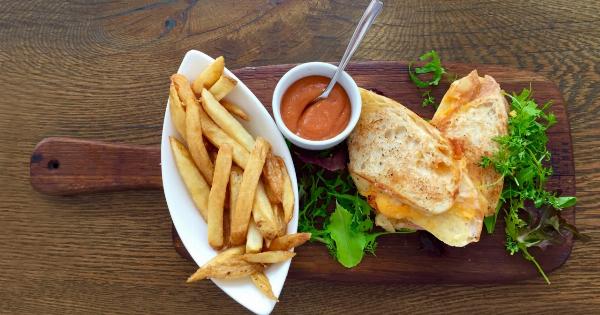Most of us love the taste of junk food, but the consequences are not so sweet. Junk food is often high in calories, sugar, and salt but low in nutrition. Our body needs quality nutrition to function well and to sleep well, too.
Poor nutrition can lead to poor sleep, and poor sleep can lead to poor nutrition. If you want to sleep better and feel better, it’s time to reduce your junk food intake and improve your eating habits. Here are some tips to help you get started.
1. Plan Your Meals
Planning your meals is crucial if you want to eat healthier and sleep better. When you plan your meals, you can make sure you’re getting all the nutrients you need and avoid last-minute fast food decisions.
Try to plan your meals at least a week in advance, and make a shopping list so you have everything you need on hand. You can also try meal-prepping on the weekends to save time during the week.
2. Choose Whole Foods
Whole foods are foods that are minimally processed and have no added sugars or preservatives. These foods are often more nutrient-dense than processed foods and can help you sleep better.
Some examples of whole foods include fruits, vegetables, whole grains, nuts, and seeds. Try to incorporate more whole foods into your meals and snacks.
3. Read Labels Carefully
When you do buy packaged foods, be sure to read the label carefully. Look for foods that are low in calories, sugar, and sodium but high in nutrients like fiber, vitamins, and minerals. Avoid foods that contain artificial ingredients and preservatives.
Don’t be fooled by marketing claims like “low-fat” or “gluten-free” – these foods can still be high in sugar and sodium.
4. Snack Smart
Snacks can be a healthy part of your diet if you choose smart options. Try to avoid processed snacks like chips, candy, and cookies. Instead, choose snacks that are high in protein and fiber, like nuts, seeds, and fresh fruit.
These snacks will keep you feeling full and satisfied between meals, and can even help you sleep better at night.
5. Avoid Caffeine and Alcohol
Caffeine and alcohol can both negatively affect your sleep, so it’s best to avoid them if possible. Caffeine is a stimulant that can keep you awake at night, while alcohol can disrupt your sleep cycle and lead to poor-quality sleep.
If you must have caffeine, try to limit your intake to early in the day. And if you do drink alcohol, try to do so in moderation.
6. Don’t Skip Meals
Skipping meals can lead to overeating later in the day and poor sleep at night. When you skip meals, your blood sugar levels drop, and you may experience hunger and fatigue. This can lead to overeating and a cycle of poor eating habits.
Eat regular meals throughout the day to keep your blood sugar levels stable and your energy levels high.
7. Stay Hydrated
Drinking enough water is important for overall health, including sleep quality. Dehydration can cause headaches, fatigue, and poor concentration, all of which can interfere with your sleep.
Try to drink at least eight glasses of water a day, and more if you’re exercising or in a hot climate. If you need some flavor, try adding fresh fruits or herbs to your water.
8. Eat Dinner Earlier
Eating late at night can interfere with your sleep by increasing your metabolism and making it harder to fall asleep. Try to eat dinner at least two to three hours before bedtime to give your body time to digest.
If you do need a snack before bed, choose something light and easy to digest, like a banana or a small serving of plain yogurt.
9. Avoid Eating in Bed
Eating in bed can make it harder for you to sleep by associating your bed with activities other than sleeping. Your body may be confused as to whether it’s time to sleep or time to eat.
Try to eat your meals and snacks at the table or in the kitchen, and keep your bedroom a place reserved for sleeping.
10. Increase Exercise and Movement
Exercise and movement are important for overall health, including sleep quality. Regular exercise can help you fall asleep faster and stay asleep longer.
Aim for at least 30 minutes of moderate-intensity exercise per day, and try to incorporate movement throughout your day, even if that means just taking short walks during your break at work.































